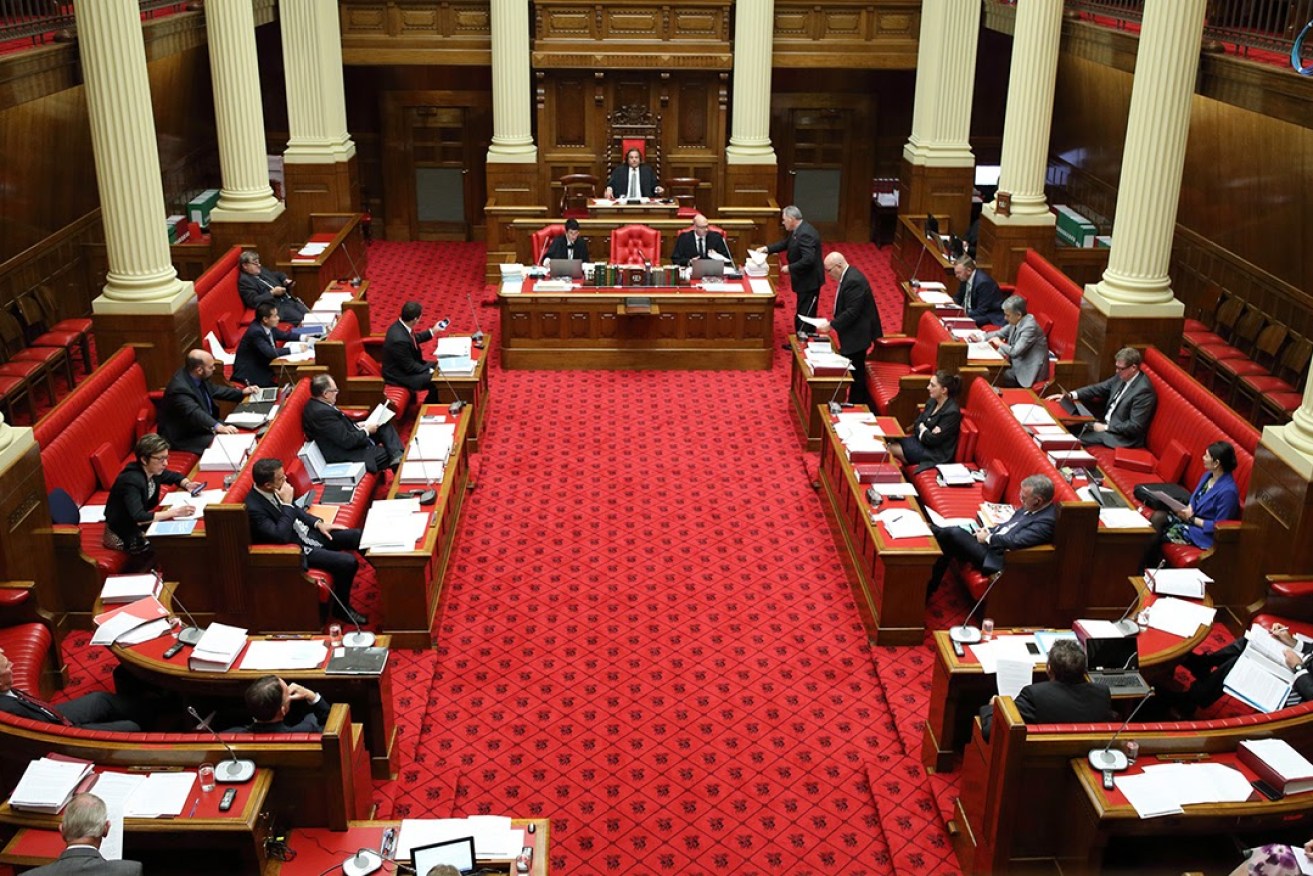NO FAIR: Push to scrap contentious constitutional clause
The Weatherill Government’s bid for a referendum on how electoral boundaries are determined may be doomed to fail, but a separate push to abolish the constitution’s contentious “fairness clause” – and two-party bias – could yet find broader support.

Photo: Tony Lewis / InDaily
Labor is seeking to amend the state’s Constitution Act – a move that would require a referendum to be held concurrent with the state election in March – to enshrine the “one vote, one value” principle that would ensure each electorate contains roughly the same number of voters.
It follows last year’s boundary redistribution, which saw a major shift in favour of the state Liberals, who have failed to seize power despite winning the statewide vote in three of the past four elections.
That’s despite the constitution holding that any redistribution must ensure, “as far as Practicable”, that a party with more than 50 per cent of the popular vote “will be elected in sufficient numbers to enable a government to be formed” – a subsection known as the “fairness clause”.
Labor challenged the determination in the Supreme Court, but lost.
Its latest gambit is similarly doomed to fail – but Greens MLC Mark Parnell has moved his own amendment, suggesting the fairness clause itself should be abolished, along with the constitution’s reference to third-party candidates whose “political stance is such that there is reason to believe that they would, if elected in sufficient numbers, be prepared to act in concert to form or support a government”.
Parnell argues the Act does not reflect the modern political landscape, enshrining a two-party hegemony ahead of an election in which a third party – Nick Xenophon’s SA Best – is expected to play a decisive role.
“I just want to get rid of that two-party view of the world,” Parnell told InDaily.
“I think it’s philosophically flawed. It does hark back to a day when there really were only two parties… now we’ve multiple parties that have success.”
He pointed to the weekend’s Queensland state election, which largely divided the spoils of seats in the unicameral parliament between the two major parties despite around a third of voters opting for minor parties.
“In setting boundaries, the Electoral Commission has to guess where third party votes will end up – which is a ridiculous judgment to make a year or two out from an election [when] you don’t know necessarily who’s going to stand, what vote they’re going to get or which way they lean,” Parnell said.
He said he believed the Government was “sympathetic” to his amendments – but it’s likely they won’t get far enough to be voted on, with Advance SA MLC John Darley set to join the Australian Conservatives to kill off Labor’s bill when it comes up for discussion this afternoon.
But Australian Conservatives leader Dennis Hood says the party is less set against Parnell’s amendments, telling InDaily: “I want to hear the debate and flesh it out”.
“I do have some sympathy for [them] but need to hear the debate properly before coming to a landing,” he said via text message.
He also suggested the party would be open to revisiting the measures if Parnell reintroduces them in a private member’s bill in the next parliament – which he confirms he intends to do.
“Depending on the results of the election, my guess is that the old [two-party] view of the world will make even less sense next year than it does now,” Parnell said.
“The old parties are on the nose and all special privileges that maintain their power should be repealed… I’ll be bringing back a range of reforms, including this one.”
Attorney-General John Rau, who introduced the doomed referendum bill, said while Labor did not have a formal position on Parnell’s amendments, “there is some logic to asking what the role of a mathematical construct like ‘two-party preferred’ means in what appears likely to be a three-cornered contest”.
But the state Liberals, who have finally received a favourable result in the Boundaries Commission after decades of despondency, remain implacably opposed, with Opposition MLC Rob Lucas insisting “we wouldn’t be supporting” Parnell’s amendments in any form.
“If there has to be a debate on that, our position is strenuously opposed,” he said.
“How anyone could be opposed to fairness in our electoral system is incomprehensible to me.”
The Fairness Clause, a uniquely South Australian oddity, has been contentious for many years, with expert witnesses to successive boundaries commissions insisting it was unworkable in practice.
The psephologist who initially proposed the clause, political scientist Malcolm Mackerras, told InDaily last year it had been an “abject failure”, and had proved to be a “silly clause… of which I’m not proud”.
“I must confess I hesitate to claim it among my achievements – because one doesn’t like to claim such an achievement that’s been such a failure,” he said.
“It’s just a silly idea and I should never have entertained it.”
But Lucas insists the notion has merit, “which is why the Supreme Court confirmed in essence that the approach that had been adopted by previous redistributions hadn’t accurately reflected the provisions of the constitution”.
“That’s why the Labor Party got their knickers in a knot,” he said.
“Having lost out on what the constitution and the law actually says, they’re trying to go through the back door to get rid of fairness – that’s the brutal reality of this.”
Xenophon could not be reached for comment today.




